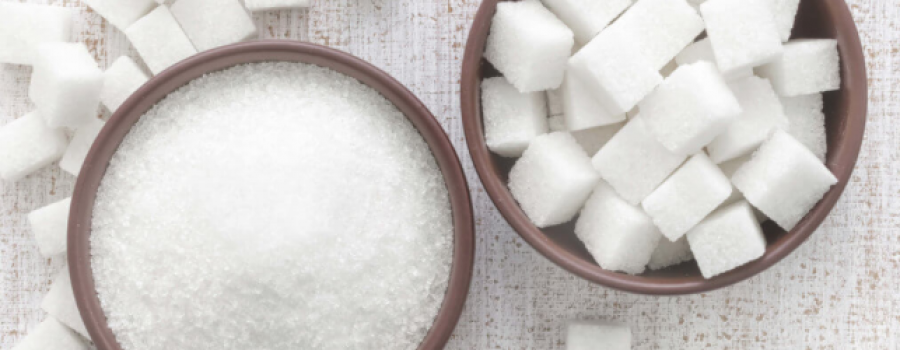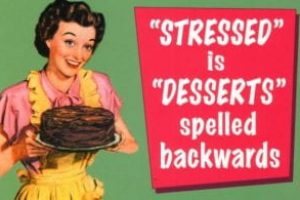#16 – Sugar! A Sweet Episode.
What is sugar? Simple Carbohydrate, specifically sucrose (table sugar), a disaccharide.
What are macros? Carbohydrates triglycerides and proteins
What’s the difference between simple and complex carbs? Length of time for digestion
What are the different types of sugars? Fructose, Glucose, Galactose vs. Maltose, lactose, sucrose
What happens when sugar is digested? Insulin pulls out of the blood, stored in liver or muscles as glycogen. If there is no need there it is stored as fat through lipogenesis.
So, is sugar bad? Yes and no. Refined sugar is sugar that has been extracted from natural sources like corn, sugar cane, and sugar beets. Essentially this is sugar that been stripped of the nutritional benefit.
However, sugar is a naturally occurring food and tastes good for a reason. Many of the fruits and vegetables that contain essential nutrients have intrinsic sugars. The difference is that the insulin rush is mitigated by the fat and fiber content of these foods, meaning that the hormonal effect of eating these is much smaller.
The question should really be, is there a better option? For health reasons, think about the value of the food relative to the caloric quantity. If you’re looking to stay in a caloric deficit, then you don’t have much space for empty calories. BUT, sugar tastes good. And that’s important too from a human perspective trying to find the balance between maximizing health and enjoyment of life.
But sugar is addictive right? It lights up the parts of the brain like cocaine, so shouldn’t it be illegal or something? There’s no way it fits in a healthy diet, right? Rats go crazy over it!
Sugar is NOT addictive. It does not cause chemical changes in the brain like we see in actual drugs like cocaine. Sugar lights up the reward process of the brain, the dopaminergic pathways. But so does ANYTHING that brings pleasure. Like drawing, or reading, or time with friends…
2 thoughts here –
1) If calling yourself a sugar addict helps you to make better decisions, find nutritional balance, and work towards overall quality of life and health, then go for it. I’m not trying to stop that change, and oftentimes it’s easier to cut things out cold turkey than to go with a little.
2) BUT, my worry and thought on labeling something that is otherwise benign as addictive is that this can stigmatize and moralize food choices. This seems to push many people away from “balance”. Sugar is bad, fat is bad, sodium is bad…. None of that clarifies any confusion. And for many people it makes things harder. Like Adam Sandler’s Mom in the water boy “Football is the devil”!!!
If you have a hard time feeling “addicted” to sugar, the real thing to look at is why you feel such a strong pull toward it. Chronic stress causes raised cortisol levels, but without the physical aspect using the stored glycogen, the blood glucose stays in the blood because cortisol inhibits insulin as a means to keep more glucose available to the muscles for a situation that never happens. This is one of the primary mechanism for why sugar and stress cause so much damage and fat gain.
The real problem is that you are stressed, unhappy, and have a bad relationship with food. You’ll eat a desert that you don’t even enjoy. You crave an after dinner sweet even though you’re full. You eat crappy pastries, hiding away from other people even though you feel shame and guilt after.
But don’t blame sugar. Sugar isn’t addictive. it doesn’t work like that even though you may desperately want something to blame. Sugar is just sugar – at worst it’s nutritionally defunct but at the end of the day, it’s just glucose.
If you struggle with a bad relationship with food, the first thing you can do is to stop moralizing what you eat.
Think about the nutritional aspects of food and work towards eating whole, less processed foods.
Don’t worry about calories and eat fewer things from a wrapper.
Give yourself grace and forgiveness when you mess up.
We all die anyways so don’t take things too seriously and find joy in the process of learning to love the body you have.




